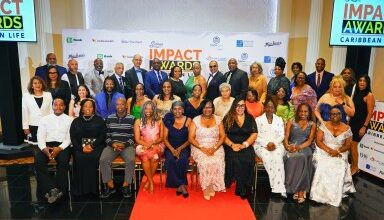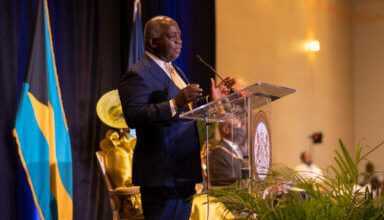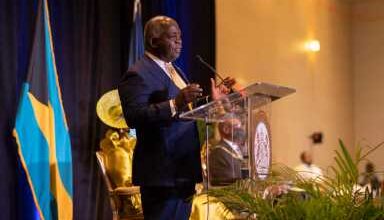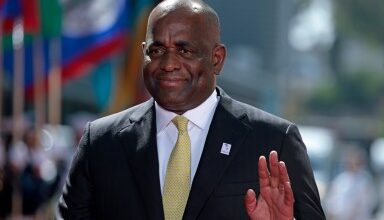Caribbean RoundUp
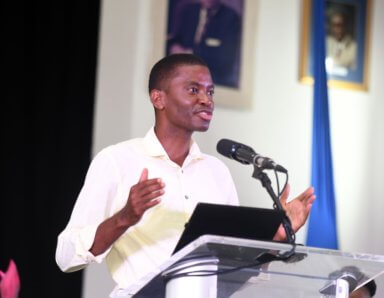
Antigua and Barbuda
The Antigua and Barbuda government has rejected a proposal that would have allowed for the enactment of special legislation allowing the police to declare a limited state of emergency.
The proposal had come from the Police Commissioner Atlee Rodney, in which he had highlighted the potential benefits of this initiative.
Rodney had said that the proposal was aimed at enhancing crime-fighting measures, noting that some Caribbean countries including Belize, Barbados and Jamaica, have already adopted similar legislation.
But Ambassador Lionel Hurst, chief of staff in the Office of the Prime Minister said, “The Cabinet is of the view that in a large place like Jamaica, which is 100 times as large as Antigua, you could indeed limit the state of emergency in some particular area that might even be as large as Antigua and Barbuda itself.”
“But…just in the discussions, I don’t think there was any support for the idea of a limited state of emergency.”
He said that while the Cabinet acknowledged Commissioner Rodney’s expertise in law enforcement matters, they maintained their reservations about the proposed amendment and that they would much rather rely on churches and religion and common sense and even the threat of arrest.
CARICOM
A four-day scientific conference started recently with the Caribbean Community (CARICOM) Secretary General, Dr. Carla Barnett praising the organizers for adhering to its mandate to promote responsible use of the region’s fisheries and other aquatic resources for the economic and social benefits of the people of the Caribbean.
The conference, organized by the Caribbean Regional Fisheries Mechanism (CRFM) features 130 authors and speakers from the Caribbean and internationally, who will present on nine thematic areas of high interest to the fisheries and aquaculture sector.
Barnett told the virtual opening ceremony that the event brings together government policymakers and officials, scientists and researchers, fisherfolk, civil society organizations, and other stakeholders to address the challenges facing the region’s marine living resources.
She said it also highlights opportunities that can chart a course towards a more prosperous, sustainable and resilient future for our communities.
“Climate change, ocean acidification, overfishing, pollution, sargassum blooms, the invasive Pacific lionfish, and illegal, unreported and unregulated fishing all place immense pressure on our marine fisheries and ecosystems. They also threaten the jobs and livelihoods of fisherfolk and the food security of our people.”
The CRFM said that the goal of the conference is to showcase the collective work done over the past two decades since it’s establishment while providing a space for networking, information exchange, and dialogue on a range of important topics.
Grenada
The Grenada government says it has approved more than 2,000 foreign investors to become nationals under the Citizenship by Investment (CBI) program for the first six months of this year.
According to the latest data released by the Ministry of Finance, 2,011 persons were approved under the CBI which allows for foreign investors to be granted citizenship in return for making a substantial investment in the socio-economic development of the island.
The fiscal report for the period January to June showed that the government’s revenue from CBI for the same period was EC$157 million, the most revenue earned from the program since it was launched in 2014.
Under the CBI legislation, an individual can apply for citizenship by either contributing at least US$200,000 to the National Transformation Fund (NTF) or through an approved project or real estate with a value of at least US$220,000. The investor must keep the real estate for at least five years following the grant of citizenship.
As of March 31 this year, Grenada stopped accepting applications from Russia and Belarus following Moscow’s invasion of Ukraine in February last year. The Dickon Mitchell government in its 2023-24 national budget estimates it will receive EC$240.4 million from the CBI program.
Guyana
Guyana has called on Britain to follow the example of the Dutch government and issue a public apology for its role in the Atlantic slave trade even as it urged the Dutch to ensure that Guyana is included in the apology and reparative mechanisms.
“We demand an apology from the British government just like how the Dutch government would have apologized publicly. We suffered the same cruelty and crime against humanity in terms of slavery, which was started by the Dutch,” Prime Minister Mark Phillips said.
He also said that Guyana should be included in whatever apology and reparative mechanisms were being offered by the Dutch since the country was not included in the initial sentiment.
PM Phillip said that he wanted London to sit with Guyana and properly look at what the country is offering, adding that the reparation Guyana is looking for is outlined in the Caribbean Community’s (CARICOM) 10 Point Plan.
The plan consists of an apology, the establishment of a repatriation program, and the development of cultural institutions for enslaved stories to be told, among other things.
Prior to John Gladstone apology, a former British plantation owner, President Irfaan Ali also called for the apology to include compensation and reparative justice.
Haiti
A powerful gang opened fire on a large group of parishioners led by “Pastor Marco” as they marched through a community armed with machetes to rid the area of gang members.
At least seven people were killed and several others injured or kidnapped after gunmen fired upon them as hundreds of people from a local church marched through Canaan, a makeshift town in the outskirts of the capital of Port-au-Prince founded by survivors who lost their homes in the devastating 2010 earthquake.
Canaan is controlled by a gang led by a man identified only as “Jeff,” who is believed to be allied with the “5 Seconds” gang.Gangs have grown more powerful since the July 2021 assassination of President Jovenel Moïse, and they are estimated to control up to 80 per cent of Port-au-Prince.The parishioners, who clutched machetes and yelled “Free Canaan!,” were no match for gang members armed with assault rifles..
Fed up with the surge in gang violence, Haitians organized a violent movement in April known as “bwa kale” that targets suspected gang members. More than 350 people have been killed since the uprising began, according to the UN.
In October, the Haitian government requested the immediate deployment of a foreign armed force to quell gang violence.
The government of Kenya has offered to lead a multinational force, and a delegation of top officials from the eastern African country visited Haiti recently as part of a reconnaissance mission.
The US said earlier this month that it would introduce a UN Security Council resolution that would authorize Kenya to take such action.
St. Vincent and the Grenadines
The St. Vincent and the Grenadines Prime Minister Ralph Gonsalves recently announced that he had received a document from the Barbados-based Caribbean Development Bank outlining a proposal for the financing and operation of a regional airline.
“I have studied very carefully the up-to-date document which I received from the president of the Caribbean Development Bank concerning the re-establishment of a regional airline and process by which we will do this,” Gonsalves told a news conference.
However, he told reporters that the initial owners of the airline could be the government of the Organisation of Eastern Caribbean States (OECS), ” but we would have to engage the Caribbean Development Bank on the exercise too.”
The OECS groups the islands of Antigua and Barbuda, Dominica, Grenada, St. Lucia, St. Vincent and the Grenadines, St Kitts and Nevis, Montserrat, Anguilla and the British Virgin Islands.
Gonsalves said that while a location for the headquarters for the airline hasn’t been discussed, he was offering St Vincent and the Grenadines as one of the options.
But he acknowledged that there’s still some work to be done and that he would speak with head of the CDB on” some clarifications and some next steps.”
He said there would be meeting with the OECS leaders and the CDB, “but we are moving seriously and actively in pursuance of an additional option in the air.”
— Compiled by Devika Ragoonanan


